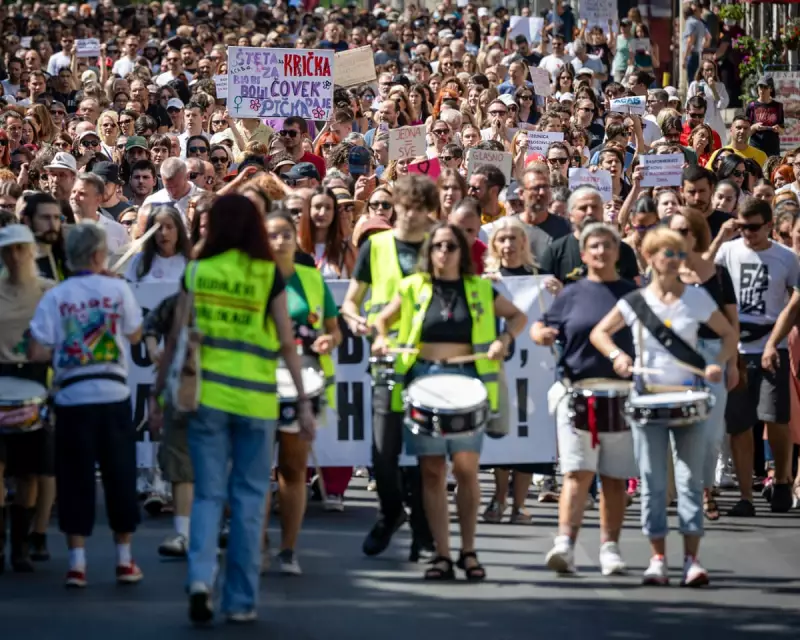
A profound struggle for the soul of Serbian democracy is unfolding on the streets of Belgrade and across the nation. For weeks, vast crowds have mobilised in a resounding show of defiance against the increasingly authoritarian regime of President Aleksandar Vučić.
These are not isolated gatherings; they represent a sustained, nationwide movement demanding political freedom, judicial independence, and an end to systemic corruption. The protesters' resolve highlights a deep-seated public yearning for a European future built on democratic principles, not strongman rule.
The Catalysts for Public Outrage
The immediate spark igniting this firestorm was the shocking return of a convicted war criminal to a hero's welcome. This event, coupled with the government's continued denial of the Srebrenica genocide, served as a grim reminder of the nationalist rhetoric that still poisons the political landscape.
But the tinder was already dry. Years of escalating state capture, where Vučić's party has methodically co-opted institutions from the courts to the media, have left many citizens feeling silenced and powerless. The public's patience has finally snapped.
The EU's Critical Crossroads
The European Union now faces a pivotal test of its credibility and values. Serbia remains an official candidate for membership, yet its government is actively dismantling the very democratic standards required to join the bloc. The EU's response, or lack thereof, will send a powerful message far beyond Serbia's borders.
Continuing accession talks and financial support without demanding tangible democratic reforms is not a strategy of engagement; it is a policy of appeasement. It grants Vučić's government a veneer of international legitimacy while it tightens its grip on power domestically. The EU must move beyond gentle encouragement and enact concrete consequences for the erosion of democracy.
A Battle for the Nation's Future
This is more than a political dispute; it is a fundamental clash over Serbia's direction. The protesters envision a country aligned with European norms of governance, human rights, and the rule of law. The current administration, critics argue, seems more inclined towards a model of 'managed democracy' reminiscent of Moscow than Brussels.
The outcome of this struggle is deeply uncertain. The government has dismissed the protesters as a misguided minority and has shown little interest in meaningful dialogue. The risk of further escalation is real.
One thing, however, is clear: the European Union cannot be a passive spectator. It must wield its considerable influence to unequivocally support the Serbian people's democratic aspirations. The battle for Serbia's future is a battle for Europe's integrity, and it is one the EU cannot afford to ignore.





